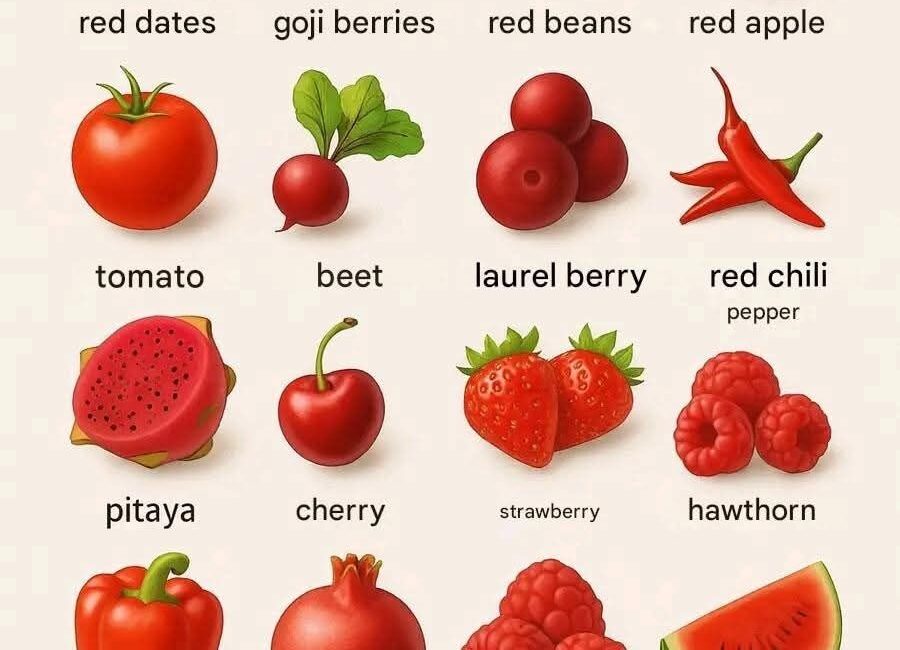Beetroot is famous for its high nitrate content, which converts to nitric oxide, a molecule essential for blood vessel dilation.
Cardiovascular Advantages:
- Promotes vessel dilation: Improves blood flow and lowers blood pressure.
- Enhances exercise performance: By increasing oxygen delivery to muscles.
- Reduces arterial stiffness: Supporting healthy aging of the vascular system.
Beetroot juice or cooked beets are excellent additions to a heart-healthy diet.
8. Red Beans: Plant Proteins and Fiber Supporting Healthy Blood Pressure
Red beans are a staple legume packed with fiber, plant protein, magnesium, and potassium—all key nutrients for heart health.
Heart-Healthy Impacts:
- Lowers blood pressure: Potassium helps balance sodium levels.
- Improves cholesterol: Soluble fiber reduces LDL cholesterol.
- Regulates blood sugar: Important for preventing diabetes-related heart disease.
Incorporate red beans into soups, salads, and stews for sustained cardiovascular benefits.
9. Raspberries and Hawthorn: Strengthening Artery Walls and Easing Heart Workload
Raspberries:
Rich in ellagic acid and anthocyanins, raspberries have antioxidant and anti-inflammatory effects that protect arterial walls.
Hawthorn:
A traditional herbal remedy known for cardiovascular benefits, hawthorn supports heart muscle contraction and promotes vasodilation.
Combined Benefits:
- Strengthen arteries, preventing damage and rupture.
- Reduce the heart’s workload by improving efficiency.
- Support healthy blood pressure and rhythm.
These can be consumed fresh, as supplements, or teas.
10. Blackberries and Goji Berries: Stimulating Circulation and Boosting Immunity
Blackberries:
Full of polyphenols and vitamin C, blackberries help increase blood flow and reduce oxidative damage.
Goji Berries:
Used in traditional medicine, goji berries improve immune function and possess antioxidants that protect blood vessels.
Together, they:
- Enhance circulation
- Support endothelial health
- Boost overall cardiovascular resilience
11. Red Dates (Jujubes): Natural Energy and Cardiovascular Support
Red dates, also known as jujubes, are nutrient-dense fruits high in vitamins B and C, potassium, and iron.
Cardiovascular Roles:
- Provide sustained natural energy.
- Promote blood circulation.
- Support healthy blood pressure and heart function.
They are commonly consumed dried or as herbal infusions in heart-friendly diets.
12. Pitaya (Dragon Fruit): Antioxidant and Anti-Inflammatory Benefits Protecting Arteries
Dragon fruit contains powerful antioxidants such as vitamin C, betacyanins, and polyphenols.
Heart Benefits:
- Reduces inflammation that leads to arterial damage.
- Protects against oxidative stress.
- Maintains healthy artery function and flexibility.
Its exotic flavor and vibrant color make it a delightful addition to smoothies or bowls.
13. Pomegranate: Keeping Arteries Flexible and Reducing LDL Oxidation
Pomegranate is well-studied for its high polyphenol content, particularly punicalagins and anthocyanins.
Cardiovascular Impact:
- Keeps arteries elastic and flexible, preventing stiffness.
- Lowers blood pressure by increasing nitric oxide.
- Reduces LDL oxidation, thus limiting plaque formation.
Drinking fresh pomegranate juice or eating the seeds regularly promotes a healthy heart.
How to Incorporate These Red Foods into Your Daily Diet
- Start your day with a smoothie bowl featuring strawberries, raspberries, and dragon fruit.
- Add red beans and chopped red bell peppers to salads or chili.
- Snack on fresh cherries, blackberries, or red dates throughout the day.
- Use beetroot juice as a pre-workout drink.
- Include cooked tomatoes and watermelon slices for lunch and dinner.
- Sip hawthorn tea after meals to support heart function.
Conclusion: Red Foods as Your Heart’s Best Allies
Eating a variety of red foods daily is a simple, delicious, and effective strategy for nurturing your cardiovascular system. By harnessing the natural power of antioxidants, fiber, vitamins, and minerals, these foods help reduce inflammation, improve circulation, regulate blood pressure, and maintain healthy cholesterol levels.
Incorporate red apples, bell peppers, tomatoes, cherries, strawberries, watermelon, beetroot, and other red superfoods into your meals to naturally fortify your heart health.
Your heart works tirelessly to keep you alive — give it the vibrant nutrition it deserves.




